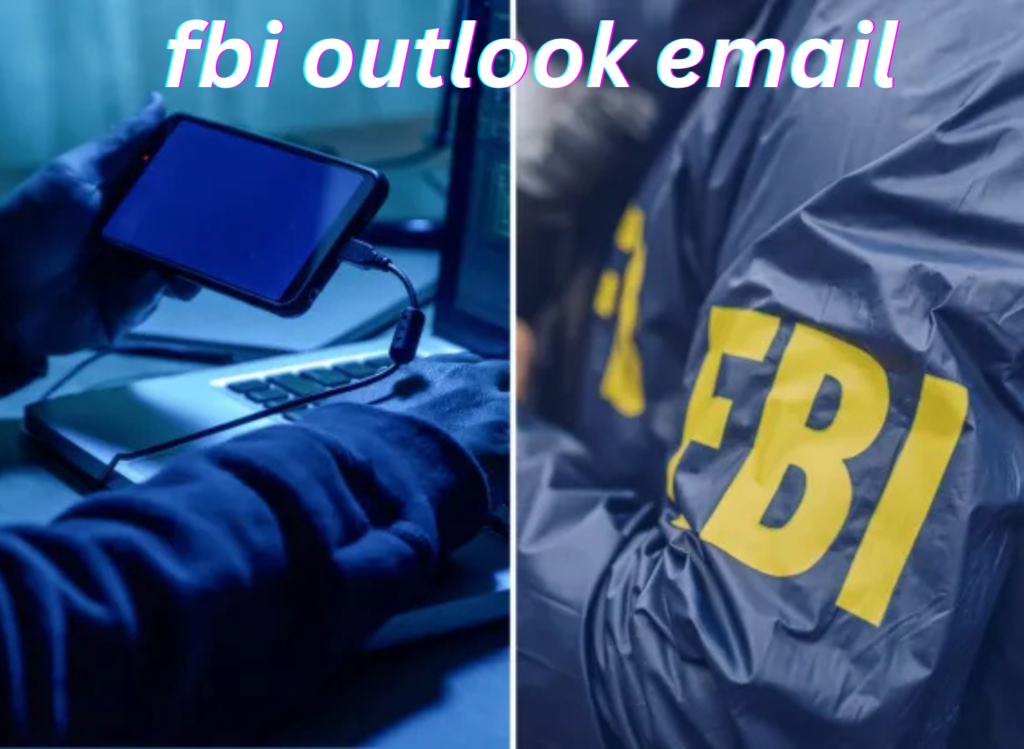In the ever-evolving landscape of digital communication, few institutions rely on email more critically than the Federal Bureau of Investigation. From coordinating field operations to sharing intelligence with national and international partners, fbi outlook email the FBI’s communication network plays a pivotal role in safeguarding the country. Among the array of digital tools at their disposal, one platform stands out for its ubiquity and robustness: Microsoft Outlook.
Outlook email isn’t just a tool for sending memos or scheduling meetings within the Bureau. It’s a cornerstone of operational efficiency, enabling secure communication between agents, departments, and even external organizations. As threats become fbi outlook email more sophisticated and time-sensitive, the need for reliable, secure, and compliant email infrastructure becomes non-negotiable. Outlook meets these demands by integrating seamlessly with the FBI’s internal systems and ensuring data protection protocols are met at every level.
This article delves deep into how the FBI uses Outlook for its internal and external operations. We’ll explore its technological foundation, the layered security frameworks protecting sensitive data, and the public’s interaction with FBI emails. Finally, we’ll look toward the future and how fbi outlook email the Bureau is preparing for the next wave of digital communication challenges. Whether you’re a cybersecurity enthusiast, a curious citizen, or someone who’s ever questioned the legitimacy of a suspicious email, this comprehensive guide offers everything you need to know about “FBI Outlook Email.”
The FBI’s Digital Infrastructure: Why Outlook?
At the heart of the FBI’s digital ecosystem lies Microsoft Outlook, a platform chosen not merely for convenience but for its ability to scale, comply with federal regulations, and support the Bureau’s complex communication needs. Outlook, part of Microsoft 365’s secure cloud ecosystem, meets stringent compliance standards such as FISMA (Federal Information Security fbi outlook email Management Act) and FedRAMP (Federal Risk and Authorization Management Program). These certifications ensure that every email sent or received adheres to the highest standards of security and confidentiality.
Unlike consumer email platforms, Outlook offers advanced administrative control, custom policy enforcement, and seamless integration with identity management systems. This means that user authentication, access levels, and email retention policies are fbi outlook email not just configurable—they’re enforceable at the enterprise level. Given the FBI’s national security responsibilities, these features are crucial. For instance, sensitive communications involving criminal investigations or national threats can be automatically tagged, encrypted, and logged.
Another compelling reason for adopting Outlook lies in its integration capabilities. Within Microsoft 365, Outlook connects effortlessly with SharePoint for document fbi outlook email management, Teams for real-time communication, and OneDrive for secure cloud storage. This interconnected environment allows agents to work efficiently without switching between incompatible systems, reducing the margin for error and saving critical time during operations.
Furthermore, Microsoft works closely with federal agencies to continually enhance Outlook’s capabilities. These collaborative efforts ensure that the platform not only fbi outlook email remains current but also anticipates and evolves alongside the digital threats facing federal law enforcement today.
How the FBI Uses Outlook Email Internally
Outlook serves as more than just a messaging tool for the FBI—it’s a centralized hub for mission-critical workflows. Every day, thousands of emails flow between field offices, headquarters, and partner agencies, carrying vital information that shapes national security fbi outlook email strategy and criminal investigations. These messages often include attachments such as surveillance reports, forensic findings, and coordination briefs. Outlook’s ability to securely manage and archive these communications ensures a clear chain of custody, which is vital for both legal proceedings and internal accountability.
Moreover, the platform allows for seamless collaboration across departments. Agents can schedule case reviews via Outlook’s calendar function, assign action items, and link to shared case files stored in OneDrive or SharePoint. The integration reduces friction in communication and fbi outlook email makes cross-agency collaboration more dynamic and responsive. It’s not uncommon for an anti-terror unit in Washington, D.C., to coordinate in real time with a cybersecurity team in Los Angeles—all through secured Outlook channels.
Another strategic advantage is the customization of mail rules and inbox management. FBI analysts often set up filters to automatically prioritize urgent updates from intelligence partners or redirect press inquiries to public affairs divisions. These small efficiencies compound, making fbi outlook email operations more agile. Outlook’s task management tools also help agents stay on track with court dates, witness interviews, and report submissions.
In essence, Outlook has evolved into a virtual operations center for the FBI, blending email, task coordination, calendar integration, and real-time updates into a single, cohesive interface.
Security Protocols and Cyber Defense Mechanisms

Given the sensitivity of FBI operations, Outlook email is fortified with an advanced layer of cybersecurity measures that go far beyond the norm. One of the primary defenses is fbi outlook email, which ensures that only authorized senders and recipients can view the contents of an email. In addition, multi-factor authentication (MFA) is mandatory, requiring users to verify their identities through secondary means like biometric scans, smart cards, or secure tokens.
Internally, the FBI operates both classified and unclassified networks. While Outlook is used on both, access is tightly controlled. Communications on classified networks use an enhanced version of Outlook tied to systems like FBINet or SCION (Sensitive Compartmented Information Operations Network). These are air-gapped or compartmentalized to prevent unauthorized data leakage.
Behind the scenes, sophisticated AI-powered firewalls and email gateways monitor for anomalies, including phishing attempts, data exfiltration, and malware-laced attachments. These systems are continuously updated to identify emerging threats. In the event of a detected breach fbi outlook email attempt, automated alerts are triggered, and incident response teams are mobilized in real time.
Additionally, behavioral analytics play a crucial role. If an agent suddenly begins accessing large volumes of sensitive files outside normal work hours or from a new location, it flags a potential insider threat. The FBI also uses email auditing tools to track communication trails, which are essential during internal reviews and criminal investigations.
Together, these layers create a robust fortress around the FBI’s Outlook email, fbi outlook email ensuring that communication remains private, protected, and resilient.
Outlook Email and Public Interaction with the FBI
While Outlook is integral to the FBI’s internal functions, it also serves as a critical bridge between the Bureau and the public. Official communication from the fbi outlook email —whether it’s field office contact, case status updates, or public safety alerts—typically originates from email addresses ending in “@fbi.gov.” These addresses are protected by digital signatures and headers that confirm their authenticity, helping the public distinguish real communications from scams.
The FBI maintains various public-facing email channels, such as tips fbi outlook email fbi.gov, to collect crime-related information from citizens. Individuals can report cybercrimes, fraud, and terrorism-related suspicions directly through these addresses. These tips are reviewed by trained analysts who prioritize threats based on severity and credibility. The simplicity of Outlook’s interface ensures that even these high-volume inboxes remain organized and actionable.
However, the FBI continually warns the public about fraudulent emails impersonating the Bureau. These phishing scams often attempt to extort money or personal information, falsely claiming criminal charges unless payment is made. It’s crucial for recipients to verify such emails fbi outlook email by checking the sender domain, examining spelling or formatting errors, and contacting the nearest FBI field office if in doubt.
In response, the FBI has launched public awareness campaigns that educate citizens on how to recognize and report fake emails. These initiatives are vital in an era where cybercriminals increasingly mimic trusted institutions. Outlook’s robust filtering and authentication features fbi outlook email help mitigate the impact of these scams, but public vigilance remains the first line of defense.
Challenges and Future Outlook
As digital threats evolve, the FBI’s use of Outlook must also adapt. One of the biggest challenges on the horizon is the rise of fbi outlook email that can mimic legitimate emails with uncanny accuracy. These threats make it harder for even seasoned agents to distinguish real messages from fake ones, necessitating continuous training and technological upgrades.
Another challenge is maintaining the balance between fbi outlook email. As the Bureau navigates legal and ethical questions about surveillance and data privacy, Outlook’s fbi outlook email infrastructure must evolve to support auditability without compromising sensitive operations. This includes enhanced logging, role-based access control, and increased automation for identifying misuse.
The future of Outlook at the FBI may involve deeper integration with AI tools that assist in summarizing reports, flagging anomalies, and even predicting threat patterns based on email data. Cloud-based tools will likely become more prominent, offering scalability and real-time collaboration without sacrificing security.
Furthermore, continuous agent education is crucial. Regular training fbi outlook email on email hygiene, cyber awareness, and secure handling of classified materials ensures that even the most advanced system doesn’t become vulnerable due to human error.
By anticipating these developments, the FBI is not just fbi outlook email reacting to threats but proactively shaping a communication infrastructure fit for 21st-century law enforcement.
Conclusion
Outlook email is fbi outlook email more than a digital convenience for the FBI—it’s a mission-critical tool that powers investigations, enhances collaboration, and safeguards national security. Through advanced encryption, seamless integration, and continuous evolution, Microsoft Outlook stands as a pillar of the Bureau’s digital operations. Whether managing a cybercrime case or coordinating a high-stakes counterterrorism response, agents rely on Outlook to deliver the right message at the right time—securely.
As technology advances and the cyber threat landscape expands, so too will the FBI’s communication strategies. Outlook will remain central to this fbi outlook email evolution, embodying the delicate balance between openness and security. For the public, understanding this infrastructure offers reassurance that even in the digital realm, the FBI is equipped to serve and protect.
FAQs
Is the FBI’s email address fbi outlook email public?
Yes, the FBI has public email addresses such as fbi outlook email for reporting crimes or suspicious activities.
How can I verify if an email is fbi outlook email really from the FBI?
Check that it comes from an official “fbi outlook email ” domain, avoid clicking suspicious links, and contact a local field office for confirmation.
What happens if I report a crime fbi outlook email via FBI email?
Your report is routed to analysts who fbi outlook email assess its credibility and prioritize it for investigation if warranted.
Does the FBI read all internal fbi outlook email emails?
Internal emails are subject to audits fbi outlook email and monitoring under specific guidelines to prevent misuse or security breaches.
Can I get in trouble for replying to a fbi outlook email fake FBI email?
No, but you should report the incident to the fbi outlook email FBI’s Internet Crime Complaint Center (IC3) for investigation.
You May Also Read: https://ventsworlds.com/bestbuy-return-policy/

